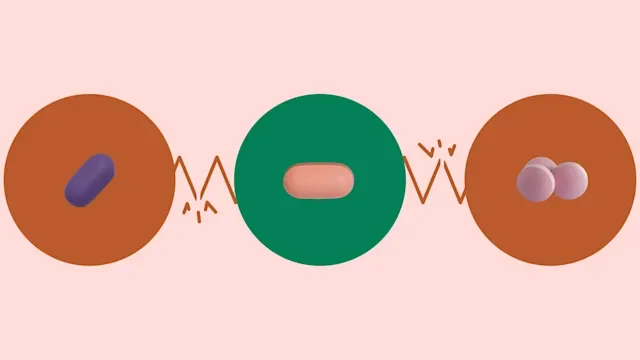Key takeaways:
Statins can help lower your cholesterol levels if they’re too high. They also have other benefits, such as lowering your risk of heart attack and stroke. Alcohol may counteract some of these benefits, especially with heavy use.
Mixing alcohol with statins may increase your risk of side effects, such as liver damage and muscle pain. The degree of this risk may depend on how much or how often you drink alcohol.
In general, it’s a good idea to moderate how much alcohol you drink while taking statins. Discuss your individual risks with your healthcare provider.
Save on related medications
Alcohol may be consumed for enjoyment, to enhance celebrations, and to lower stress. But if you’re taking a statin, you may want to think twice before pouring yourself a drink.
Statins, such as atorvastatin (Lipitor) and rosuvastatin (Crestor), are first-choice medications used to lower cholesterol and to reduce the risk of heart attack and stroke. Alcohol, especially excessive amounts, may counteract these potential benefits. And certain statin side effects, such as liver damage and muscle pain, may be more likely to develop, too.
You may not need to avoid alcohol entirely if you’re taking a statin. But it’s important to understand the potential risks of combining them. We cover four things you should consider below.
1. Alcohol may increase the risk of liver damage from statins
Your liver has several important jobs in your body. One of these involves breaking down medications and other substances. When you drink alcohol, your liver is responsible for processing it. And all statins go through your liver to varying extents, too.
Regular alcohol consumption can cause or contribute to liver damage over time. This usually starts as alcohol-related fatty liver disease, which can progress to alcoholic cirrhosis. Sudden liver inflammation called alcoholic hepatitis is also possible from heavy alcohol use.
Some people taking statins see reversible changes in their liver tests, usually without symptoms. While very rare, liver damage is also possible with statins, especially higher doses. It’s possible that alcohol use may increase this risk. In fact, statins have a warning that people who consume a substantial amount of alcohol while taking them may have a higher risk of liver damage. But this hasn’t been studied extensively and more research is needed.
It’s important to have an open and honest discussion with your healthcare provider about how much alcohol you drink before starting a statin. If needed, they may choose to monitor your liver health more closely during treatment.
2. Alcohol may increase the risk of muscle pain from statins
Muscle pain is one of the most commonly reported statin side effects. Alcohol use can also affect your muscles, causing symptoms such as weakness, pain, and tenderness after an alcohol binge (4 or 5 drinks in a single episode) or chronic use. It can also cause inflammation or dehydration that affects muscle function.
Muscle pain doesn’t affect everyone who takes statins, but alcohol use is one factor that can increase your risk. This may depend on how much and how often you drink, so it’s important to discuss this with your provider. The statin you take and your statin dose may also influence your risk of muscle pain.
Read more like this
Explore these related articles, suggested for readers like you.
Whether you drink alcohol or not, it’s important to let your provider know if you experience muscle pain or soreness while taking a statin. In rare cases, rhabdomyolysis — when muscle byproducts get into your bloodstream and clog your kidneys — is possible. Muscle pain, weakness, and dark-colored urine are common symptoms.
3. Alcohol can affect your cholesterol levels
Even small amounts of alcohol can affect your cholesterol levels. But the amount of alcohol you drink, genetic factors you may have, and how you process alcohol make a difference in the overall impact on your numbers. This is important to keep in mind since statins are usually taken to lower cholesterol levels.
There’s no research to support drinking alcohol to improve overall health. Some studies suggest that light or moderate drinking may have a beneficial effect on cholesterol levels, specifically HDL (“good” cholesterol) levels. But this doesn’t mean that you should start drinking. The risks of drinking alcohol outweigh any potential benefits.
There are no health benefits to heavy alcohol use. In fact, heavy use or binge drinking can lead to higher LDL (“bad” cholesterol) and triglyceride levels (a type of fat in the blood). These are linked to clogged arteries and other forms of heart disease.
4. Alcohol may offset some benefits of taking a statin
Statins lower the amount of LDL cholesterol and triglycerides in your blood. This can help reduce the risk of cardiovascular-related death, heart attack, and stroke. Certain people are prescribed statins for these benefits, including those with heart disease, diabetes, and very high LDL cholesterol.
Depending on how much you drink, alcohol may work against the potential benefits of taking a statin and make your statin harder to tolerate. Not only can alcohol affect your cholesterol levels, it can also lead to two well-known contributors of heart disease — high blood pressure and weight gain. Excessive alcohol use can also increase the risk of having a stroke or heart attack.
Along with a heart-healthy diet and regular physical activity, your statin will work best if you moderate how much alcohol you drink. Talk to your healthcare provider about how much (if any) is a safe amount for you.
The bottom line
Combining alcohol and statins may lead to negative effects on your health, especially with heavy alcohol use. This may include a higher risk of muscle pain and liver damage during treatment.
Statins can help lower cholesterol levels and reduce the risk of heart attack and stroke. Heavy or routine alcohol use may interfere with these benefits. Because of this, it’s a good idea to limit or avoid alcohol use with statins to protect your overall health. Your healthcare provider can tell you how much alcohol, if any, is safe for you to drink.

Why trust our experts?



References
Bytyçi, I., et al. (2022). Prevalence of statin intolerance: A meta-analysis. European Heart Journal.
Gitlin, Z., et al. (2023). Statin safety and adverse events. American College of Cardiology.
Kalra, A., et al. (2023). Physiology, liver. StatPearls.
Rising Pharma Holdings, Inc. (2023). Atorvastatin calcium- atorvastatin calcium, film coated tablet [package insert]. DailyMed.
Simon, L., et al. (2017). Alcoholic myopathy: Pathophysiologic mechanisms and clinical implications. Alcohol Research: Current Reviews.
Ward, N. C., et al. (2019). Statin toxicity. Circulation Research.


















